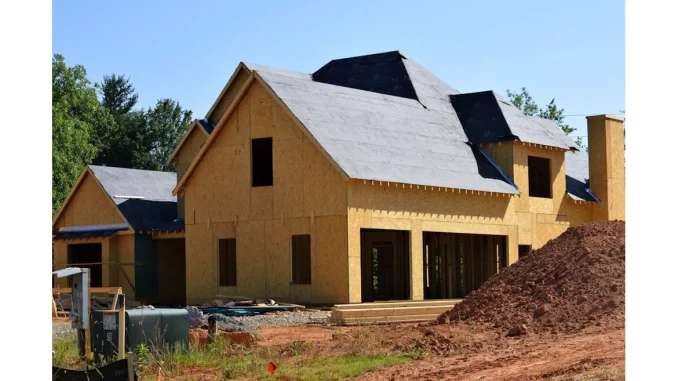
Embarking on a home improvement project is an exhilarating yet substantial undertaking that demands meticulous planning and thoughtful deliberation. Whether you envision a modernised kitchen, an additional room, or a comprehensive home makeover, the journey can be as fulfilling as the final result, provided you navigate it with care. From establishing a realistic budget to prioritising quality over cost, domestic clients must diligently manage the process of appointing a builder to ensure a successful and satisfying renovation experience. Here are fourteen essential tips that encompass key considerations for selecting the right builder and achieving desired outcomes for home improvement projects.
Read more about sustainable development.
The anticipation of a transformed living space is undoubtedly exciting, but it’s crucial to approach your home improvement project with a strategic mindset. Proper planning is the bedrock of any successful renovation. Begin by clearly defining your objectives, setting a realistic budget, and establishing a timeline. Detailed planning not only aids in visualising the end result but also in identifying potential challenges and opportunities early on. This foresight can significantly contribute to a smoother renovation process by preemptively addressing issues before they arise.
One of the most critical facets of planning is budget management. Overspending can derail even the most well-conceived plans. A carefully considered budget ensures efficient allocation of financial resources throughout the renovation process. It’s not just about having sufficient funds but about deploying them judiciously. Always account for potential hidden costs and maintain a contingency buffer for unforeseen expenses. This prudent approach to budgeting can prevent financial strains and keep the project on track.
Before entrusting your home to a builder, conducting thorough background checks is indispensable. Verify the builder’s credentials, including licenses and insurance policies, to ensure compliance with all legal requirements. Investigate any complaints or issues in their history to gauge their reliability. This step is crucial in ensuring you hire a trustworthy professional who adheres to necessary standards and regulations. Additionally, obtaining quotes from multiple builders allows for a comprehensive comparison of costs, services, and timelines, empowering you to make well-informed decisions.
The significance of a detailed contract cannot be overstated. A comprehensive contract serves as your primary safeguard against misunderstandings and disputes. It should clearly delineate expectations, timelines, payment schedules, and provisions for managing unforeseen circumstances. A well-drafted contract not only protects the interests of both parties but also lays the groundwork for a harmonious collaboration. This document becomes the cornerstone of your working relationship, ensuring that all parties are aligned and aware of their responsibilities.
Selecting the right builder involves more than just evaluating costs. Pay close attention to the builder’s experience, track record, and communication style. Research their previous projects and seek recommendations from trusted sources. A builder’s ability to communicate effectively and demonstrate a history of successful projects can provide valuable insights into their suitability for your project. Effective communication is the linchpin of a successful home improvement project. From the outset, establish clear communication channels and protocols. Set realistic timelines, provide regular progress updates, and maintain transparency in all dealings. This fosters collaboration and ensures that everyone remains on the same page throughout the project.
Prioritising quality over cost is a worthwhile investment. While cost is undoubtedly a significant factor, investing in high-quality materials and workmanship leads to a more enduring and satisfactory outcome. Quality materials may come with a higher upfront cost, but they ensure durability and aesthetic appeal. Seeking guarantees for the work done and references from past clients can offer reassurance about the builder’s capabilities. Furthermore, understanding payment schedules and milestones outlined in the contract helps in budgeting effectively and avoiding financial disputes during the project.
Anticipating potential issues and having contingency plans in place is essential for navigating unforeseen challenges without derailing the project. Discuss the builder’s process for handling changes to the original plan to ensure smooth adjustments when necessary. Open and transparent communication fosters trust and a collaborative working relationship. Establishing clear expectations, goals, and communication protocols from the beginning sets a solid foundation for a successful partnership throughout the project.
Incorporating these fourteen essential tips into the process of appointing a builder for home improvement projects can significantly enhance the renovation experience. Strategic planning, clear communication, quality craftsmanship, and thorough research are key components in ensuring a smooth and satisfactory home improvement journey. By approaching your renovation project with diligence and attention to detail, you can achieve a successful outcome that not only transforms your living space but also enhances your home’s value.


Be the first to comment